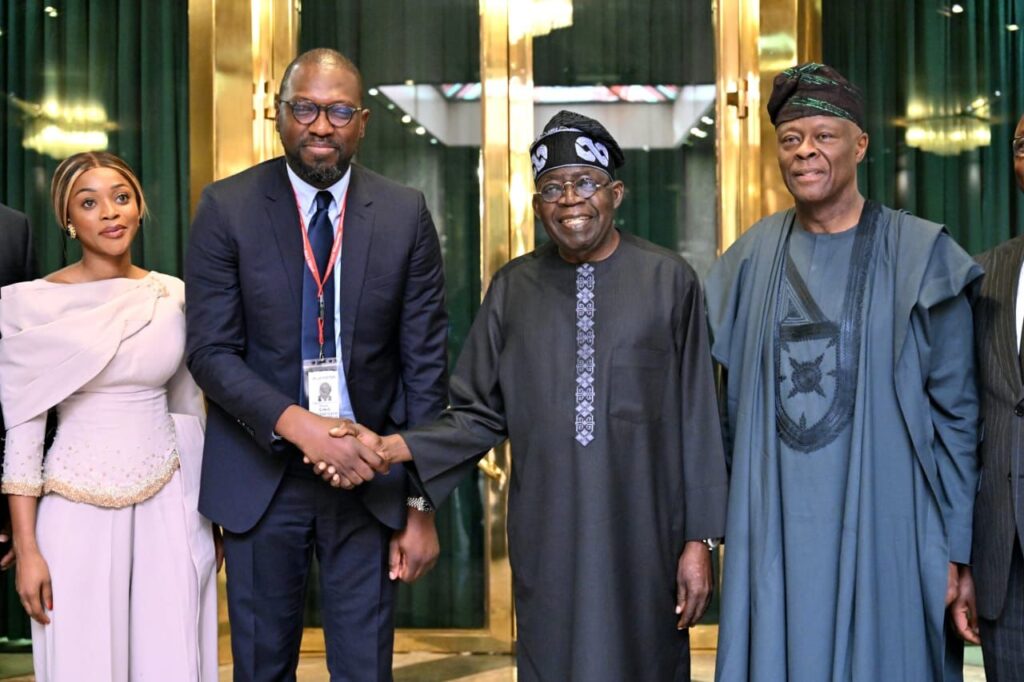Nigeria’s Minister of Women Affairs, Hajia Imaan Sulaiman-Ibrahim has reaffirmed her Ministry’s commitment to women and children’s empowerment, protection, family advancement, and the inclusion of vulnerable groups in Nigeria’s national development agenda.
The Minister who made the promise during the highlights of her achievement in her 100 Days in office, recalled that, “The day I held a four-year-old girl in my arms, trembling with fear after surviving the unacceptable horrors of abuse. In her eyes, I saw not just pain but a silent plea for protection, for justice, and for a future she could believe in. That moment changed me forever – it reminded me of the urgency of our mission to protect and nurture every child.
Imaan who said, “With over 100 million Nigerian women and girls, and millions more children and vulnerable populations looking to us for leadership, action, and results, we must drive a transformational agenda that truly empowers, protects, and uplifts those we serve, assured of the dedication of her Ministry to move from policies to action, from conversations to measurable impact, and from incremental progress to bold, systemic reforms.
According to her, “I will outline our strategic priorities, highlight key initiatives undertaken, and share our vision for the future. Our actions are guided by a Strategic Plan of Action, which has been meticulously developed to drive impactful interventions and will be shared with you.
“The work of the Ministry of Women Affairs is guided by Nigeria’s international commitments and national policies, which serve as the foundation for our interventions.
“We continue to lead the implementation of the National Gender Policy (2021), the National Women Economic Empowerment (WEE) Policy, the Child Rights Act (2003), the National Action Plan on Women, Peace, and Security, and other critical frameworks.
“At the international level, our mandate aligns with the United Nations Sustainable Development Goals (SDGs), the Convention on the Elimination of All Forms of Discrimination Against Women (CEDAW), the African Charter on the Rights and Welfare of the Child, the Beijing Declaration and Platform for Action, the United Nations Security Council Resolution 1325 on Women, Peace, and Security, and the AU Maputo Protocol, among others.
“These frameworks provide a clear direction for our efforts, and under a renewed vision, we are accelerating their implementation to drive meaningful results.
At the core of our efforts is a bold and ambitious vision – to empower 10 million women economically by 2027, ensuring they play a vital role in Nigeria’s economic transformation. This aligns with President Bola Ahmed Tinubu’s vision of a $1 trillion economy, where women are key contributors to national productivity.
“We have already taken decisive steps toward achieving this, with the commencement of implementation of the World Bank supported Nigeria for Women Scale-Up Project, which targets 4.5 million women across all 36 states and the FCT.
“Through financial literacy, business development, and cooperative structures, we will be equipping women with the tools they need to build sustainable enterprises and contribute meaningfully to economic growth.
“Economic empowerment remains one of the most effective ways to uplift women and dismantle systemic barriers that limit their potential. Recognizing this, the MOWA-SARA Accelerated Skills Acquisition Programme, in collaboration with WEMA Bank, is set to train 500,000 women in key areas, including vocational skills, business entrepreneurship, and financial inclusion.
“The first phase of the program is currently underway in Kano State, with 2,500 women being trained at the Ministry of Women Affairs Centre in Dederi and the Kano Hospitality & Tourism Institute in Gyadi-Gyadi.
“To further strengthen access to finance, the Ministry is working on setting up a National Microfinance framework for Women Entrepreneurs.
“This initiative aims to bridge the financing gap for women, ensuring they have affordable credit, investment opportunities, and gender-responsive financial services to grow their businesses and contribute more effectively to national development.
“In addition to financial empowerment, we have launched a food intervention program for women and vulnerable groups, recognizing the economic hardships that many families are facing. By providing direct food assistance and supporting women-led agricultural initiatives, we are ensuring that no woman or child is left behind in our collective journey toward prosperity.
Sneaking on Strengthening Child Protection and Legal Frameworks, the Minister said that a critical aspect of the Ministry work, which has historically been put on the back burner, is the protection and development of Nigerian children.
“We are now bringing this to the headline, to ensure that every child is safe, educated, and empowered to reach their full potential. One of the major milestones in our first 100 days has been the establishment of a Child Rights Act Review Committee, which is tasked with harmonizing, strengthening, and modernizing Nigeria’s child protection laws.
This committee is working to address gaps in the legal framework, ensuring that child marriage, trafficking, abuse, and violence are effectively tackled at all levels.
The Minister who also spoke on Ending Gender-Based Violence and Strengthening Global Partnerships, clamored for stronger partnerships, faster implementation, and a unified approach to gender and social development to enable the Ministry to achieve some of it’s laudable goals.




 2 weeks ago
21
2 weeks ago
21









 English (US) ·
English (US) ·